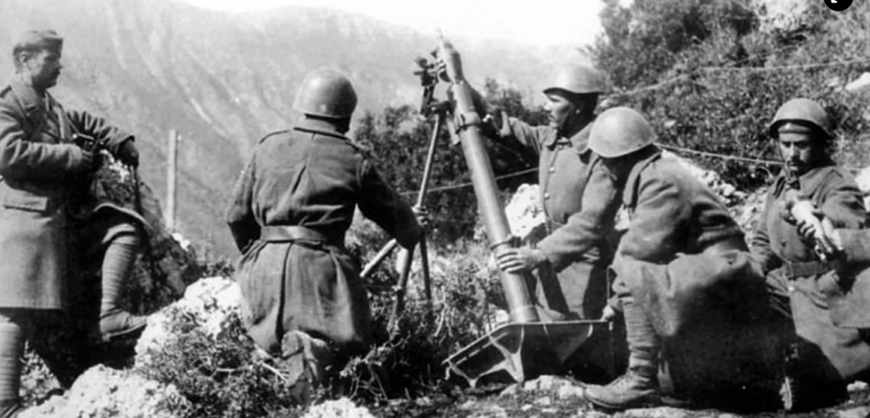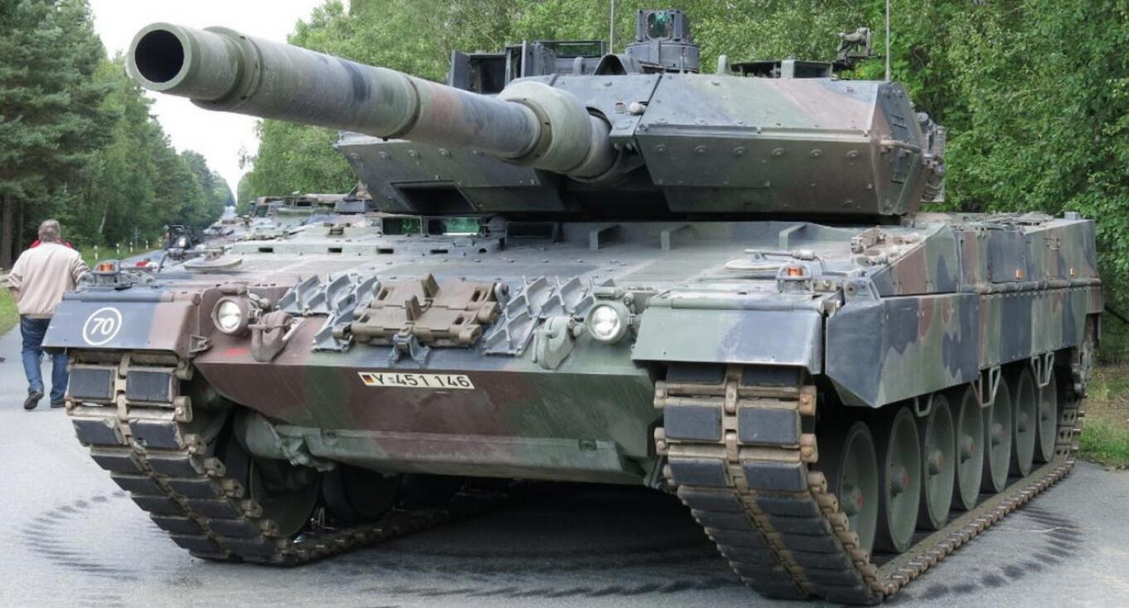It was 83 years ago when Greece faced the German invasion on its northern borders. The resistance of the Greeks, especially in the first days of the invasion, in the fortresses of Macedonia and Thrace against the Nazis, was courageous. However, the stronger and better-equipped German forces, aided by the entrapment of Greek troops in Albania, managed to prevail thus forcing Greece to surrender, and on April 27, 1941, the swastika flag waved over the Acropolis.
However, the Germans still had one obstacle to Greece’s total occupation. That was Crete. The Nazi operation in Crete began on May 20, 1941, and was finalised on May 31, 1941. The Germans suffered greatly, they had very high losses, and if it wasn’t for a New Zealand officer inexplicably abandoning the Maleme airport, they would likely have been further delayed in capturing the island. Many historians agree that the German intervention in Greece, following the fiasco of the Italian invasion and their delay here, had painful consequences on the Eastern Front (Russia).
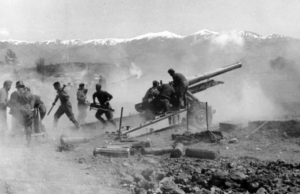
German paratroopers, who were considered one of the elite units of the German army were annihilated and were prevented from being used for the remainder of WW II. The plan for the Middle East faded for the Nazis. Churchill notoriously had expressed that in Crete, Goering had a Pyrrhic victory in that due to the with the forces he expended in Crete he could have used the very same forces to have conquered Cyprus, Syria, perhaps even Persia.
In our recent article about German operation ‘Barbarossa’ against the Soviet Union (17/03/2024), we read with an unpleasant surprise comments from readers, some of whom not only questioned the significant problems caused to the Nazis due to their delay in Crete but even considered Greece’s contribution of 7.5 million as almost nonexistent (the population of our country) in World War II. We do not know if this is in light of ignorance or deliberate disregard. Today, evidence will be presented clearly demonstrating Greece’s contributed to the War.
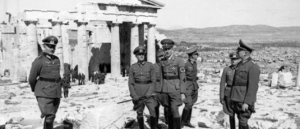
Statements from British, French, Russian, and German politicians and historians about Greece’s contribution to World War II
Perspectives from foreign politicians and military personnel during the war about Greece’s contribution stated that, on October 28, 1942, Philip Noel-Baker, Minister of Shipping of Great Britain, emphasised in a radio speech: “If Greece had succumbed to Mussolini’s ultimatum, no one would have the right to blame the country. I say this knowing then and knowing even more today what surrender would have meant for us and for our struggle: the Axis would have had all of Europe at its disposal to develop its communication lines, and its planes and submarines would have dominated the entire Mediterranean from the shores of Greece. Our defense efforts in Egypt would have become much more difficult.
Syria, Iraq, Iran, and Cyprus would have been occupied by the Axis and Turkey would have been surrounded. The oilfields in the Middle East would have been at their disposal. The back door to the Caucasus would have been open for them. We do not find it difficult to believe that we would have lost the whole Middle East, perhaps even the war. Thanks to the Greek resistance, we were given the time to repel and crush the Italian army, which moved from Libya via Egypt, to clear the Red Sea of enemy ships, to transport American aid to the Middle East, and thus to neutralise the enemy threat against it.
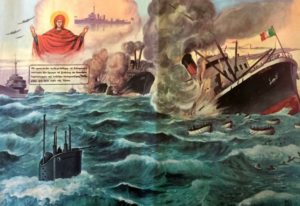
The results of Greek resistance are still evident in our struggles today. If today we can refer to a Stalingrad and the Caucasus it is due to the Greek resistance, from which we continue to benefit even after the passage of time. The world certainly must not ignore the achievements of the Greeks during the a fore mentioned heroic moment.
Undoubtedly, Germany’s involvement in the Balkans played a significant role but it was even more significant for Greece in that it was the main cause for the postponement of the attack against the Soviet Union by 5-6 weeks. The consequences of this delay were critical for the Germans, as the harsh Russian winter set in before they could achieve decisive results. From then on, time was against them until their final defeat. This great contribution that Greece had to offer towards this allied struggle was emphasised even while the war was ongoing. On October 28, 1941, the First Lord of the Admiralty, speaking in London, said: ‘It is no exaggeration to say that Greece overturned all of Germany’s plans, forcing it to postpone its attack on Russia for six weeks. We wonder what the position of the Soviet Union would be without Greece.”
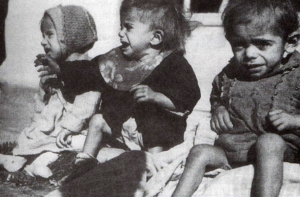
On September 24, 1942, the then Foreign Secretary of Great Britain, Anthony Eden, in a speech at the British Imperial Club in London, said: “Regardless of what future historians may say, what we can say is that Greece first gave an unforgettable lesson to Mussolini, that it was the catalyst for the national uprising in Yugoslavia against the Axis, that with the little help we were then able to provide, it held the Germans on its mainland and in Crete for six weeks, that it overturned the chronological sequence of all the plans of the German High Command and thus brought about a radical change in their campaigns and perhaps in the entire course of the war. We the British will never forget the relief and comfort that the honesty and dignity of the Greeks offered us during those strenuous moments of the war.”
The French diplomat Ofrua, in a speech on February 18, 1942, from the Radio Station of London, concluded: “Thus, the heroic resistance of the Greek people saved the Turkish people from the tragedy of war and offered the Allies six precious weeks, the result of which was felt in Hitler’s Russian campaign.” In a broadcast on the Moscow Radio Station on April 27, 1942, on the topic “Greetings to the Greeks,” the following was also mentioned: “…You fought small against large and prevailed. It could not have been otherwise, because you are Greeks. As Russians, we won, thanks to your sacrifice, time to defend ourselves. We thank you…”. Of course, out of great gratitude, a few years later, Soviet Foreign Minister Molotov, after distributing strokes with his inflexibility at the Paris Peace Conference, consented, hours later, making us a great favour, to give the Dodecanese Islands to Greece. Thus the Russians show their gratitude…”
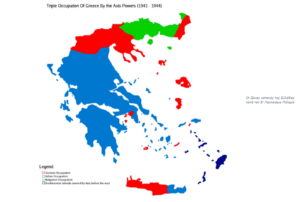
The significance of Greek resistance against the Nazis
From details that were released after the war, Hitler, crushing France as early as May 1940, had given verbal orders for a secret preparation for an attack against the USSR. However, the unfavourable turn of events for the Axis powers in the Greco-Italian War, and especially the possibility for the British to bomb Romanian oil fields from Greek territory or to create a Macedonian front based on Thessaloniki, similar to what happened during World War I, caused great concern for Hitler. Initially, this led him to decide to prepare an operation against Greece. In mid-November 1940, the Führer had stated that “the idea that England could find support in Greece was intolerable for Germany, and the Reich was obliged to prevent it under any circumstances.”
German General Blumentritt recounted to British historian Lindell Hart that Hitler remembered the occupation of Thessaloniki by the Allies from 1915 to 1918 and feared that in 1941 the British would again land in Thessaloniki or on the coast of southern Thrace. Such a landing would bring them to the rear of Army Group South as it advanced eastward into southern Russia…
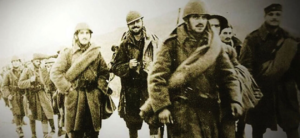
Hitler knew how crucial the factor of time was for the outcome of the Russian campaign and decided to forcefully resist Greece. After the failure of Mussolini’s much-vaunted spring offensive against the Greek Army and the military coup in Belgrade on March 27, it was decided to carry out the Balkan movement, which also led to the postponement of the effort against the USSR for four weeks.
The relevant order with No. 25 contained the following phrase: “Under these conditions, the start of Operation Barbarossa must be postponed for four weeks at most.” However, the campaign in Greece lasted almost two months (April 6, 1941 – May 31, 1941). The elite German units considered essential for German efforts facing the Soviets had to return moving Operation Barbarossa to June 22, 1941.
In the article with reference to Operation Barbarossa, some readers commented that the delay of the Nazis in Greece was minimal and argued that the main problem was the weather in May 1941, cold rivers in Poland, and so on. However, two German Generals from World War II who spoke to the British historian Liddell Hart Field Marshal von Rundstedt said that “the preparations of the army were delayed by the belated arrival of the armoured divisions that had been used in the Balkans and that this was the crucial factor in combination with the weather.”
Field Marshal von Kleist said: “It is true that the forces used in the Balkans were not large compared to our total strength, but the ratio of tanks was significant. The volume of tanks that participated in the attack on the southern Polish front had taken part in the Balkans campaign and needed re-adjustment of the machines while the crews needed rest. A large number of them had moved to the Peloponnese and were forced to return the same way.”

Human losses and destruction in the Greek economy during World War II
The toll Greece paid for its involvement in World War II was extremely heavy. The casualties exceeded 400,000, with some sources estimating them at over 500,000. Let’s see what Tasos Vournas writes in “The History of Modern Greece.” The dead numbered 422,688, broken down as follows: 13,500 lost their lives in the Greco-Italian War, 10,000 in El Alamein, Rimini, at sea, and as members of resistance organizations. Around 310,000 people died of starvation (200,000 in Athens-Piraeus and 110,000 in the rest of Greece), while 60,000 hostages, including Greek Jews, were killed in Germany. The executed and murdered reached 49,188, most of them in Athens-Piraeus, totaling 12,600.
Throughout the country, there were 47 concentration camps, with 500,000 people arrested. 1,700 villages were burned down. The same “fate” befell 709 schools and 501 churches. The total number of burned houses reached 142,828, with 13,998 auxiliary buildings also destroyed. There were 111,000 families left homeless across Greece, while 853,584 animals were stolen or killed. Unfortunately, even after liberation, tragic events continued. After December 1944, 103,187 people were arrested nationwide. On November 18, 1945, there were 16,073 prisoners. The number of murdered was 980, and 200,000 people were persecuted.
Certainly, Tasos Vournas did not refer to the casualties of the Civil War. However, the invaders also paid a heavy price. Just in battles with Greek resistance fighters, the Germans lost 22,000 men, the Italians 4,500, and the Bulgarians 3,500. ELAS had 6,000 dead and 800 disabled. Tasos Vournas does not mention the losses of EDES and other resistance organizations.
Christos Euelpidis provides details on the destruction of the Greek economy between 1940 and 1944 in his book “Economic and Social History of Greece” (1950). At the end of the war, the reduction in production was significant: 40% for cereals, 80% for tobacco, 70% for cotton, 60% for currants, and 50% for vineyards. Livestock capital decreased by 50% for large animals and 30% for small ones. Forests were reduced by 20%. Mining activity was practically wiped out, and all mining facilities were destroyed. Industrial production decreased by 50%. Most of the road and rail networks were destroyed, along with 70% of port facilities. Seventy-three percent of cars were literally seized by the invaders, and the country’s commercial and passenger shipping suffered losses of 73%.
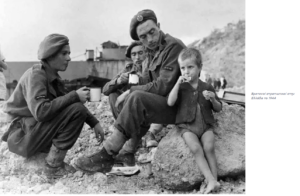
The Result
Despite the enormous losses in both human lives and infrastructure, Greece managed to recover owing to allied assistance, primarily from the United States. Those who insist that our country did not contribute anything significant to WWII need only read the data previously mentioned. To demonstrate the Germans’ malice towards the Greeks, consider the following incident: During their retreat in October 1944, they detonated several points of the Corinth Canal, blocking it by dumping over 500,000 cubic meters of soil and many railway cars into it (its water depth is around 7 meters)!
The canal, which had been blown up by the British in April 1941 but was reopened in the wake of to intensive work by the Italians on August 2, 1941 (!), was restored for common use in 1949 following support from the US. It’s worth mentioning that during the occupation approximately 10% of the Greek workforce was directly or indirectly employed for the Nazis.
Indeed, some were coerced into this situation. However, there were also many who profited from their association with the Germans. Some were tried and convicted as collaborators. Others fled abroad while some managed to evade any consequences for their treacherous actions, and we may never learn the absolute truth about them…

